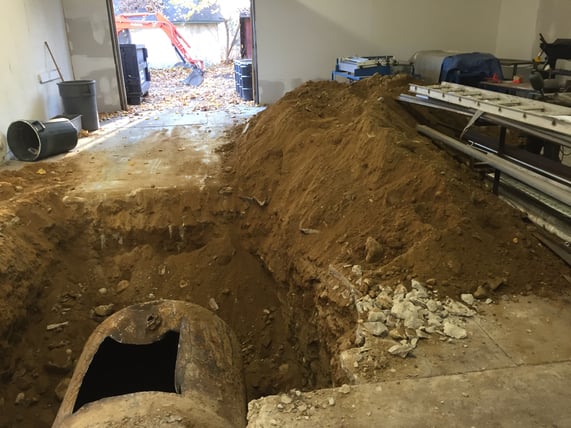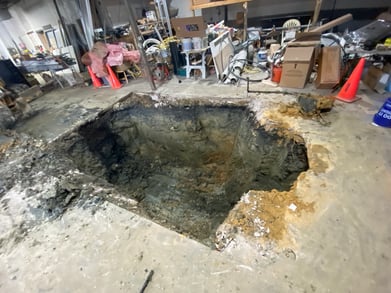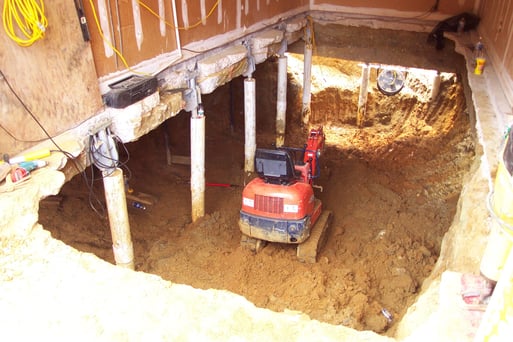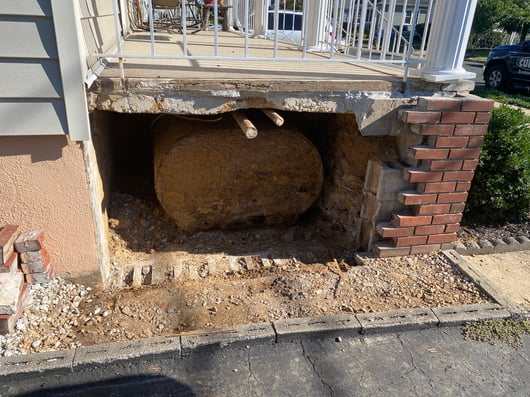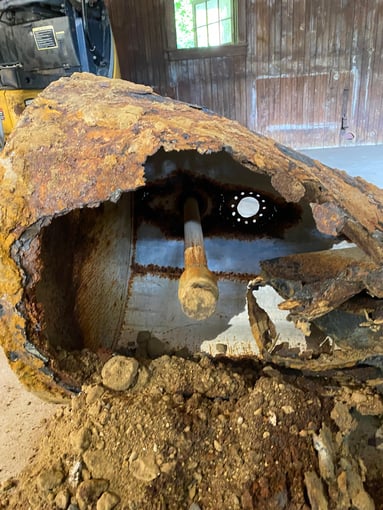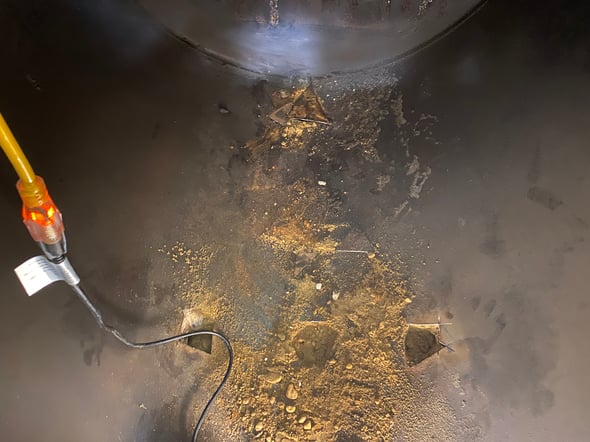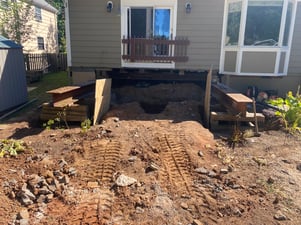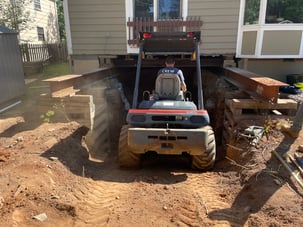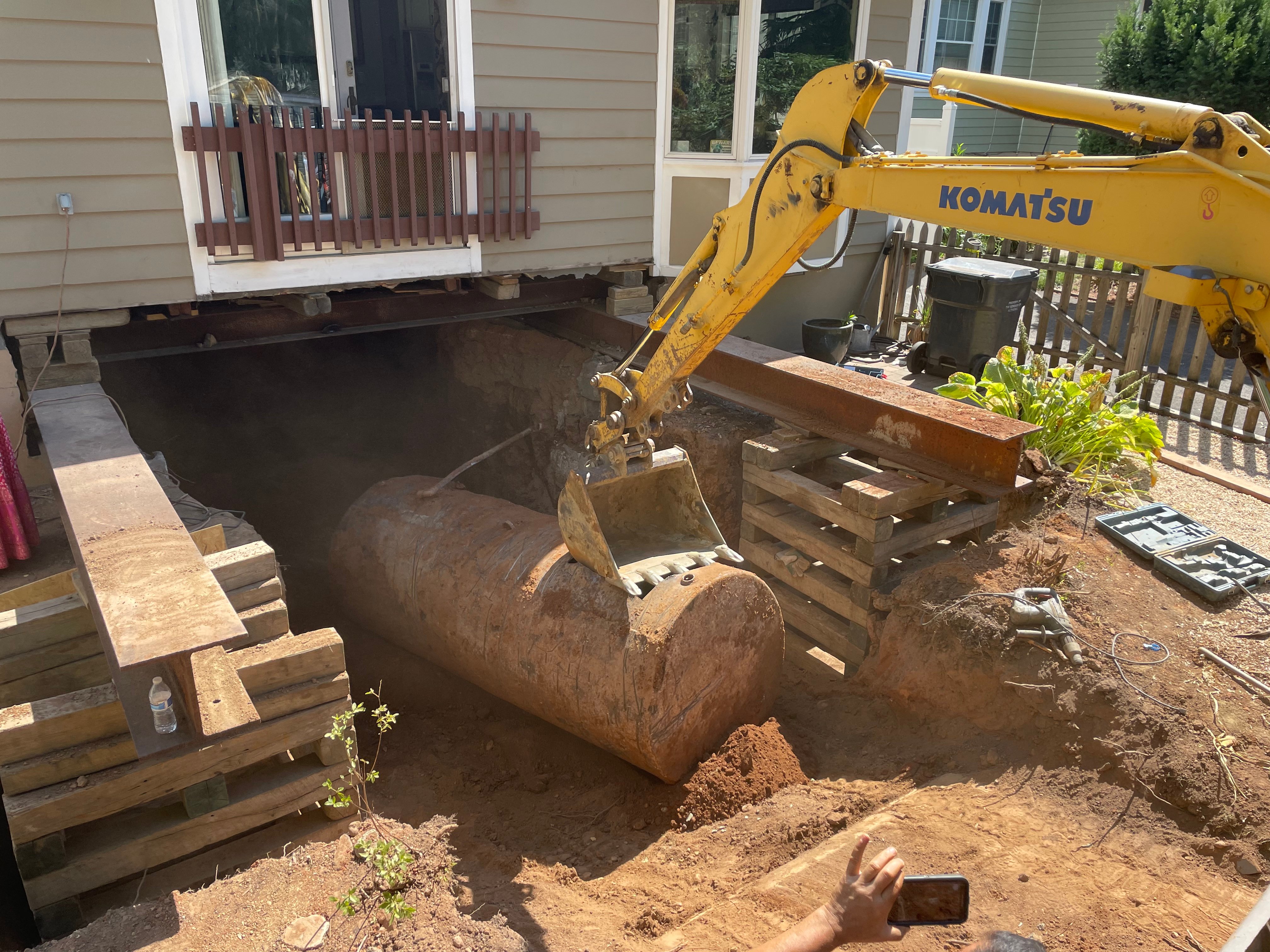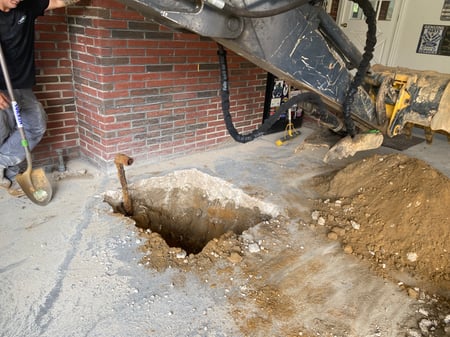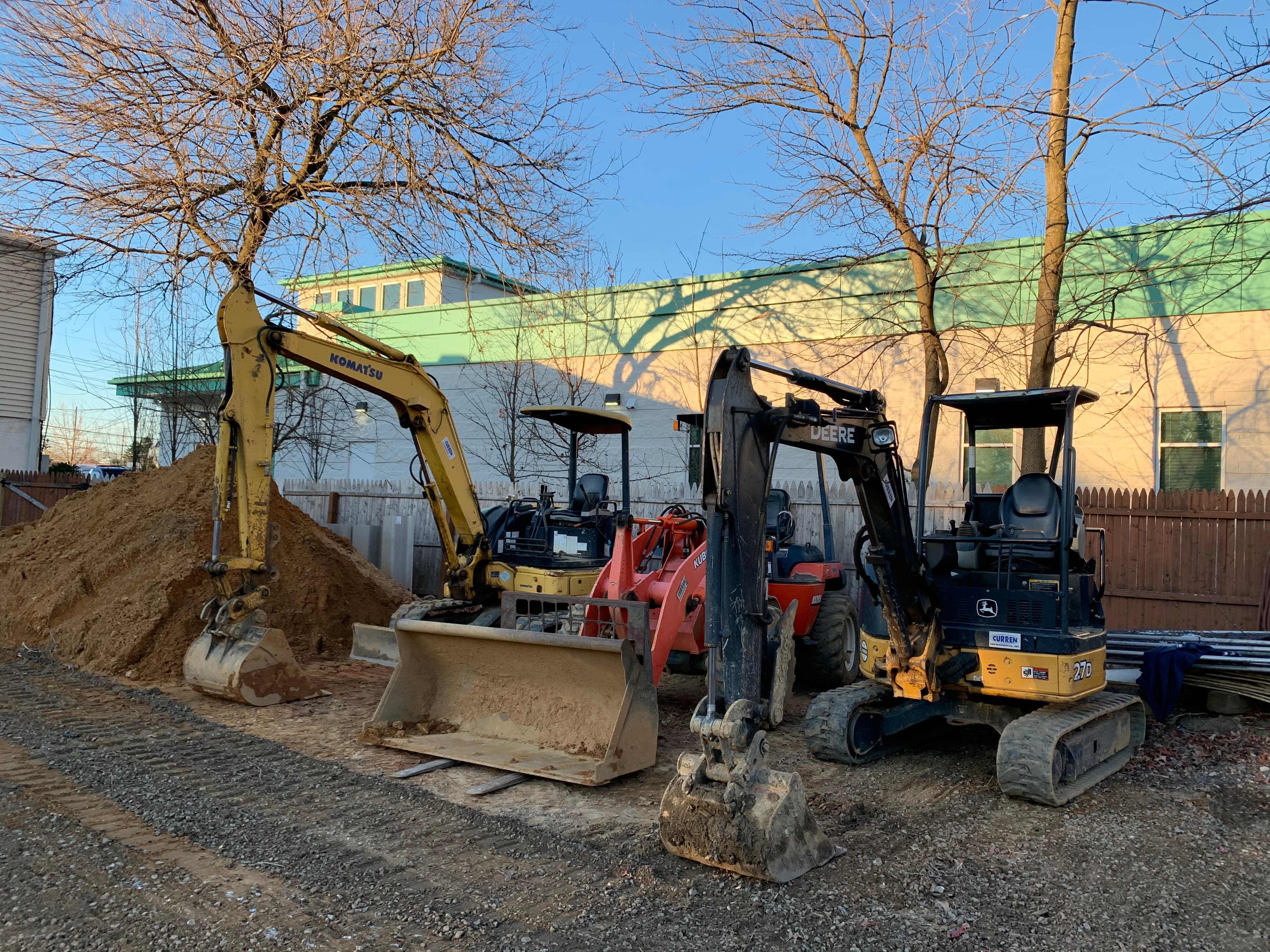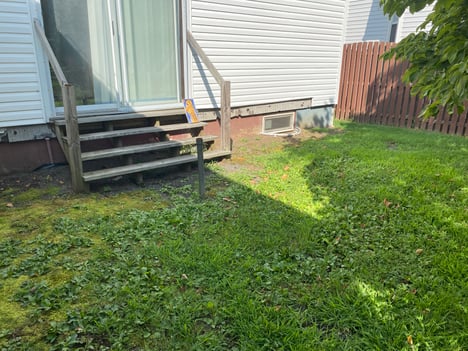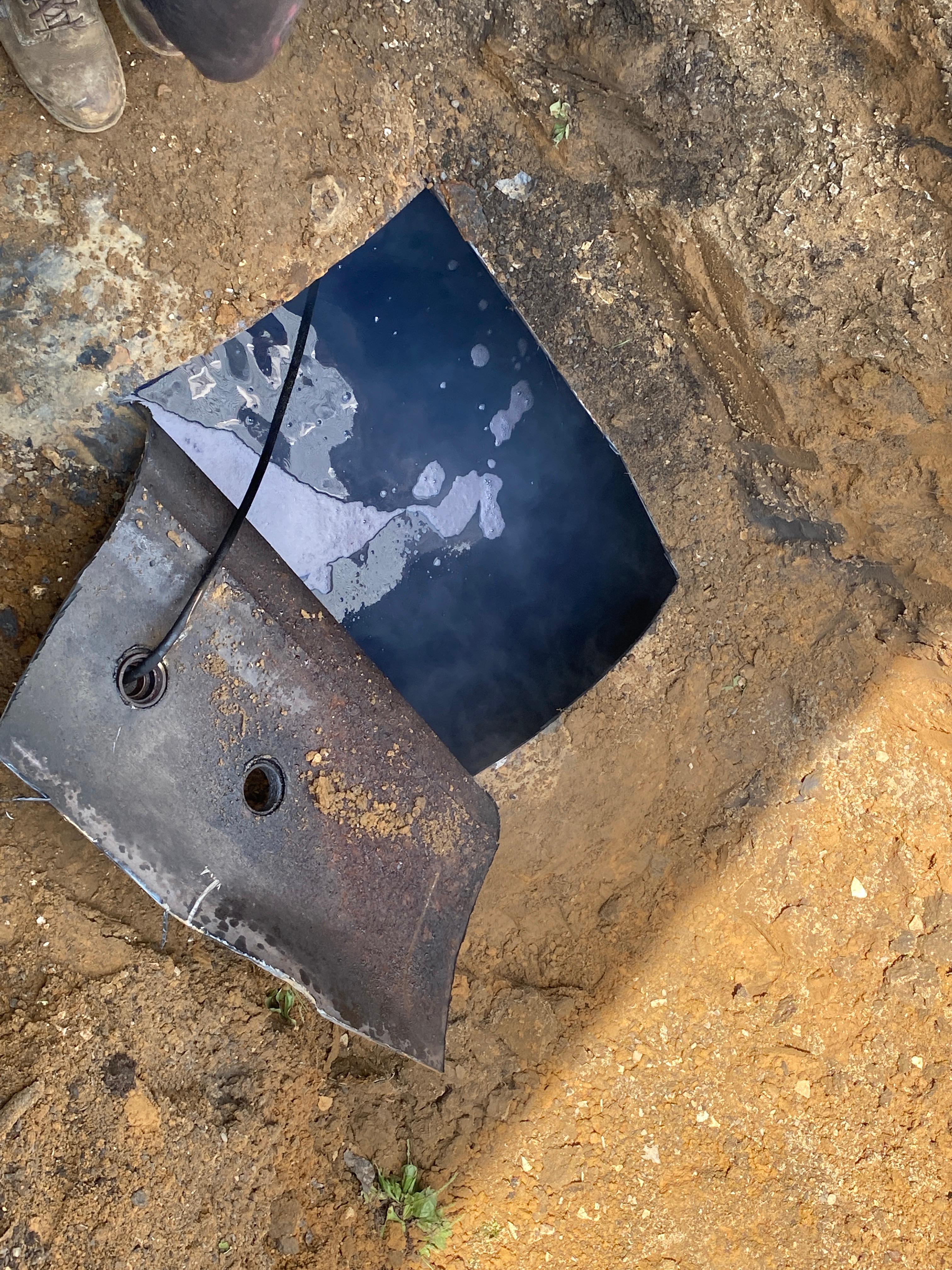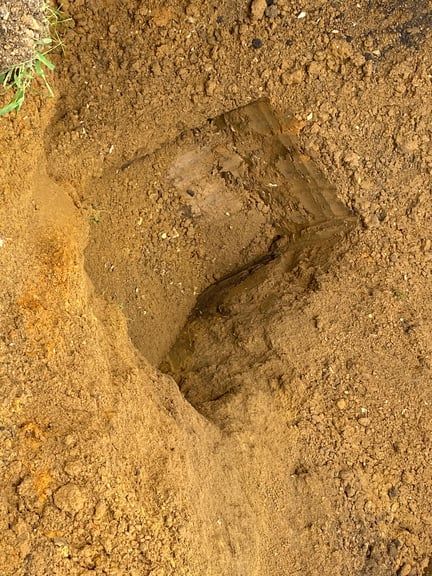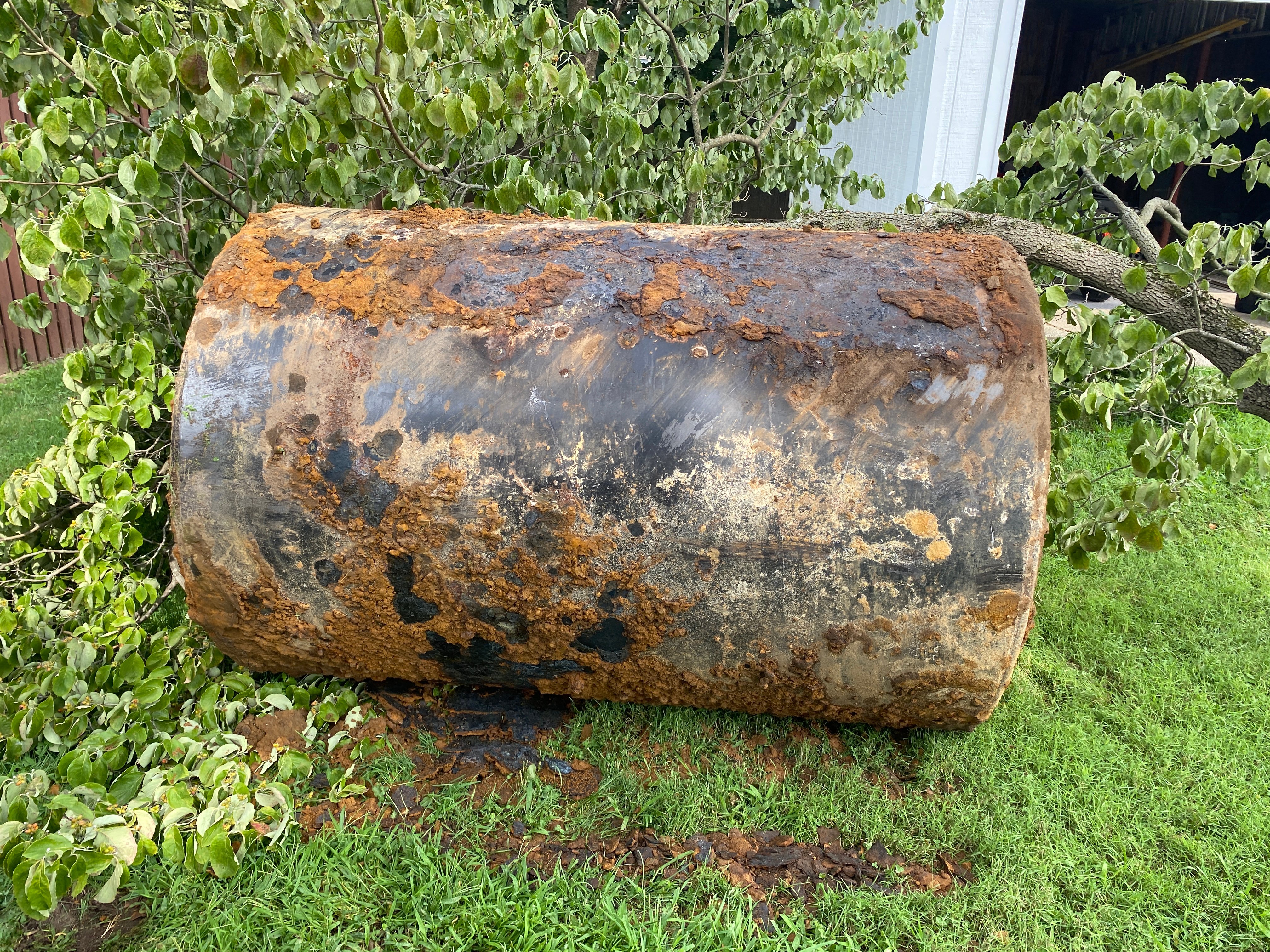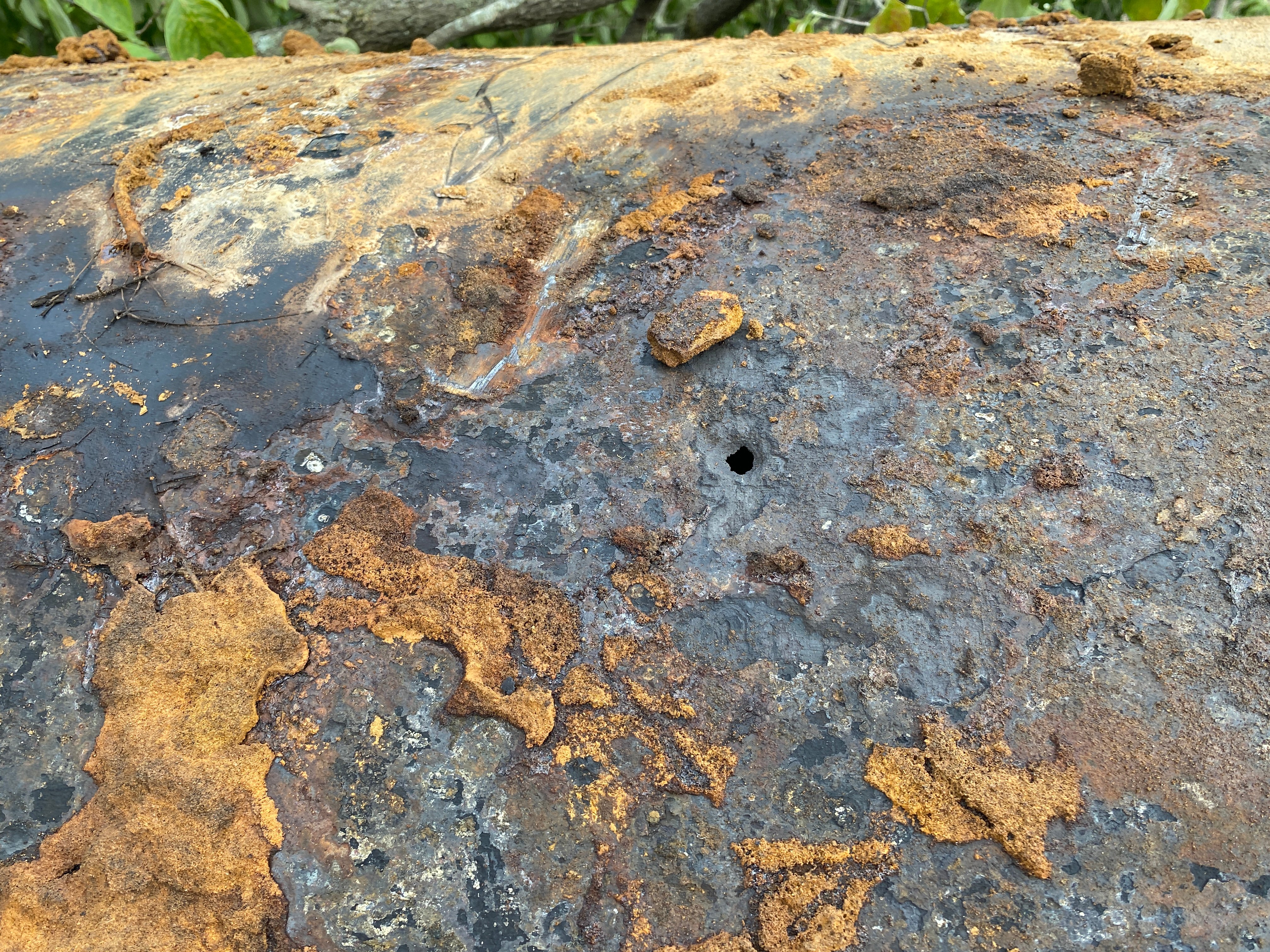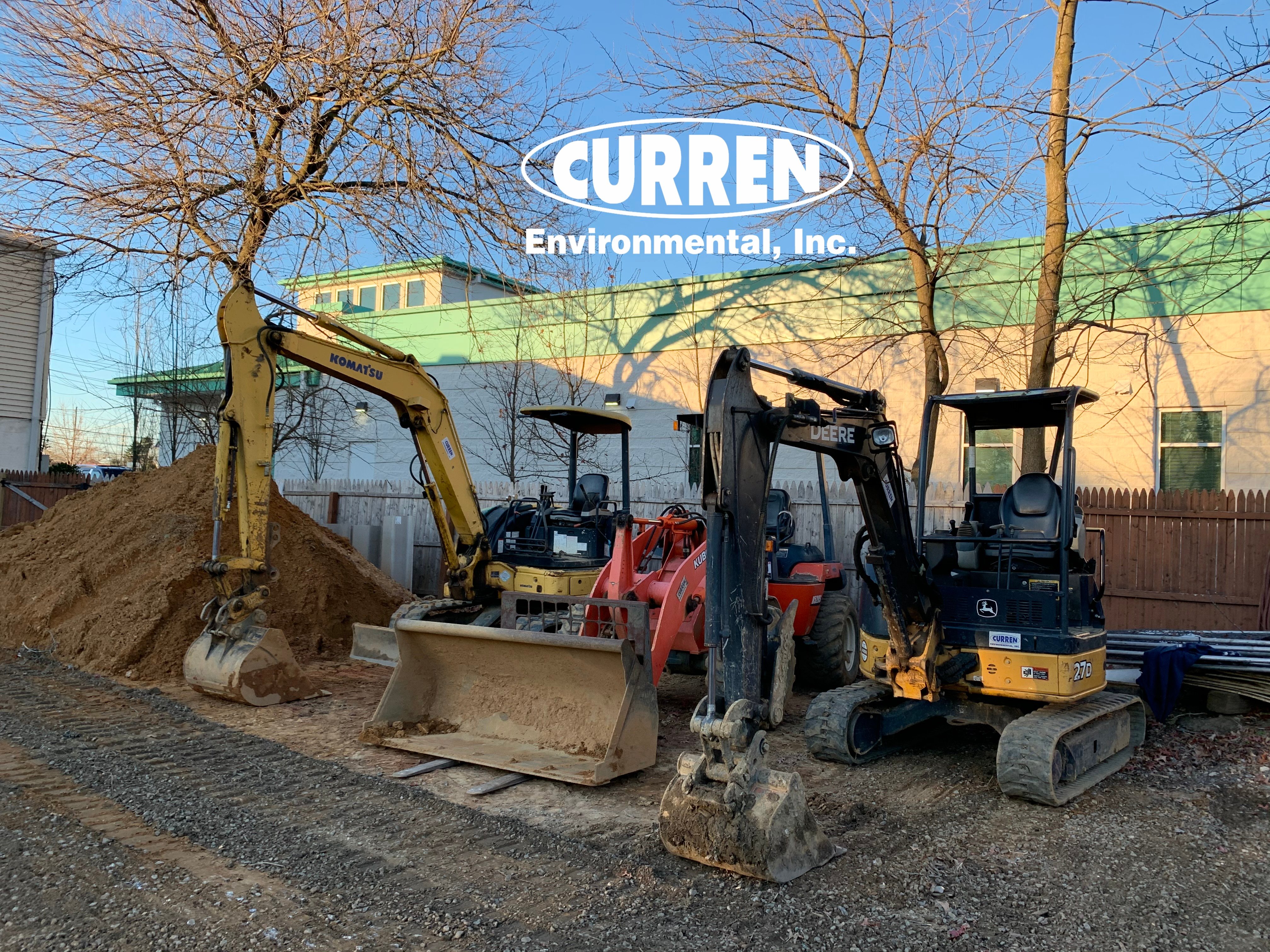When buying a house you inherit the improvements, the land, and the fixtures. An oil tank would be classified as a fixture as it is connected to the house as a fuel source. Generally speaking, an oil tank would be thought of as something typically transferred during the sale. The tanks in the photo below are newer, about 13 years old, and are in an 80-year-old house, the layperson's opinion would be great new oil tanks, right? Well, the older, wiser bull would ask - what happened with the prior oil tank?
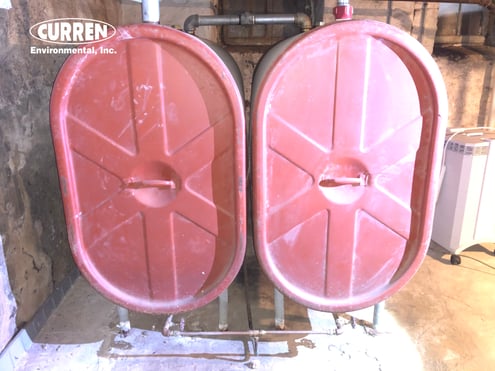
The answer would be the prior oil tank is in the ground or rather underground, and the in-use underground oil tank was replaced because the water was entering the oil tank the oil tank was not removed because it cost money and the new oil tanks were an unexpected expense. Trust us the buyer is going to want the buried tank removed.
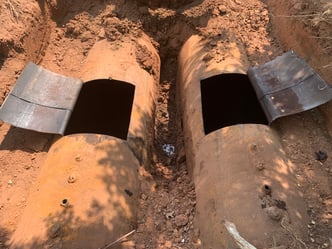
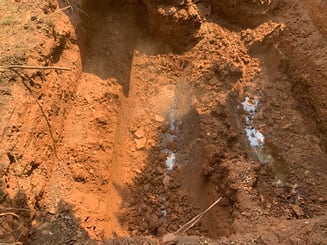
To finish the story above, one of the oil tanks did leak, about $14,000 to clean up, so not that bad.
Oil tanks are a great exception when it comes to real estate. Oil tanks are a known liability, a Recognized Environmental Condition (REC), or an Area of Concern (AOC). Oil tanks age and wear and when the failure occurs, oil leaks, which causes soil contamination, which under current laws is the responsibility of the owner to repair and remediate. Now, buyers are known to sue sellers after the sale occurs if they discover the oil tank leaked and buyers believe owners did not disclose this key defect.
Can you sell a house with an oil tank that is in use or decommissioned or abandoned?
Sellers can indeed legally sell the home, but in the rare times this does occur there is liability generated for both buyer and seller. To buy a property with a tank is to assume the liability associated with the tank, which some buyers assume is no liability.
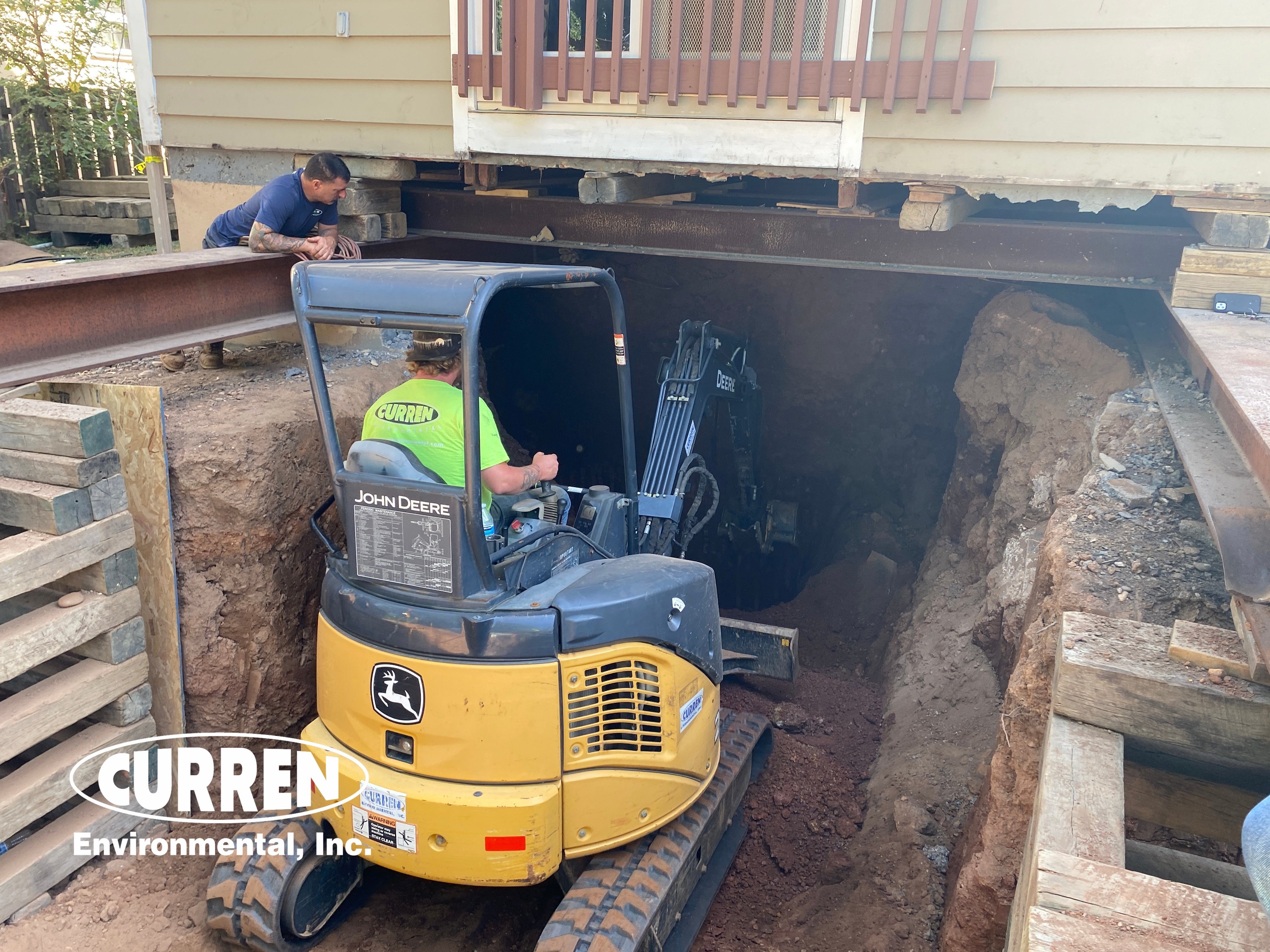
Why would a seller want to sell a property with an oil tank?
First to remove and replace an oil tank, budget $2,000 for removal and $3,000 or more to install a new oil tank. Converting to natural gas, budget $10,000. The first reason to sell with an oil tank is seller saves money and why would a seller want to upgrade a house they are selling? But that isn’t even the real reason sellers sell with an oil tank, it's because the remediation of an oil tank can cost $30,000 or more, or less, but the cost to remediate is more than most people can budget, so it’s an expense people avoid.
So who has liability when selling a house with an oil tank?
Both buyer and seller have liability. For a seller, when the transfer occurs, no doubt the buyer is not anticipating a $50,000 cleanup and when that occurs, lawsuits occur as the buyer suspects the seller knew about the oil tank and lied. Sellers who sell tanks are viewed as used car salespeople. We have seen every sort of lawsuit from Estates to retired people to young couples selling to buy a larger home, in every scenario the buyer finds contamination that they believe the seller knew about. In most cases the buyer wins and the seller pays.
How does a buyer have liability for buying a property with an oil tank?
Buyer beware, break it you buy it, possession is 9/10th of the law. Whatever the term, if you own the property, you own the problem. Sure, you can sue the seller as in our example above, but if it is say an Estate and the estate dissolves and the money is gone, good luck.

What if you have an abandoned oil tank and disclose it to the buyer?
Buyers buy homes where the seller discloses they had an oil tank filled in place tank, after they buy the property they realize that an abandoned oil tank doesn’t mean no leaks. The saying goes as long as it was abandoned properly, that oil tank does not present any legal issues. The real question isn’t whether a seller can do it, it’s whether a seller should or to put it in simple terms are you 100% the abandoned oil tank does not represent an issue?
Case in point, property being sold, owners did not disclose an oil tank. The buyer does an oil tank weep and finds an oil tank. Sellers dig up information on the oil tank, even though two days earlier they did not know the underground oil tank. Curren Environmental is requested to review the paperwork. It included an invoice, a copy of the permit (to fill the oil tank in place), a copy of the oil manifest, a hand-drawn map of the property and a one-page letter which I snipped below.
Makes No Warranty or Certifications to Soil, Groundwater, or Environmental Conditions.
So did the tank leak? I don't know, but the company that did the work is not saying it did or didn't. per the statement above.
The next step is to the oil tank gets removed and tested, because the paperwork is insufficient in today's environment, but to be fair this wasn't sufficient in 2005 either, but the people who owned the house did not want to find a problem so they hired a company who would not test the soils. Of course, flashforward to today and they are paying again to get the tank decommissioned so they can sell the property.
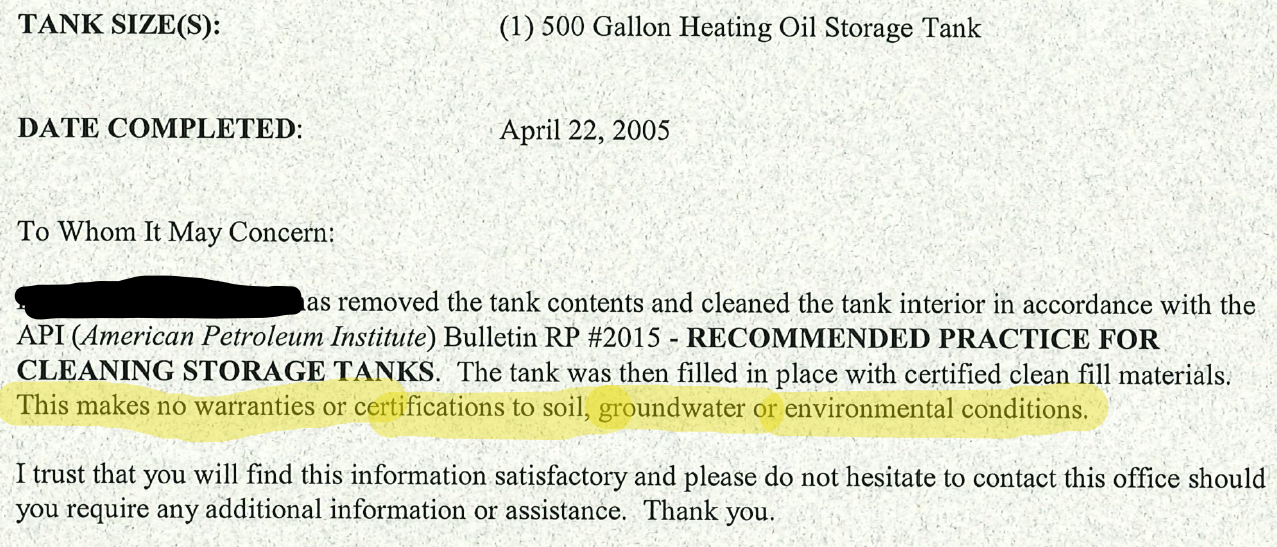
What do you have that says the oil tank did not leak? 9 times out of 10 it’s the wrong document, like my example above. A thousand other set of documents that is insufficient to certify the oil tank as nonleaking.
Buyers and sellers need to be on the same page with oil tanks.
Did you look for contamination when the oil tank was abandoned? Like when a dentist looks for cavities, when you abandon an oil tank there are steps you take to certify the tank did not leak, and also testing, like an x-ray.
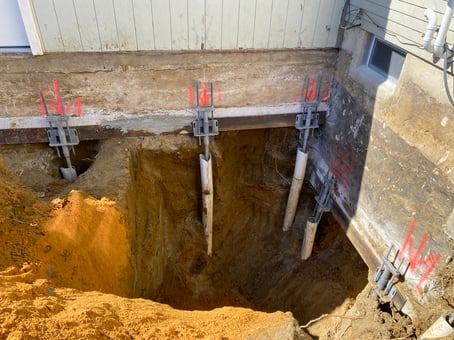
What if you remove the oil tank instead of filling it in place? Would we find contamination?
We often find contamination when removing abandoned oil tanks. Yes, you read that right, we find some evidence of contamination, of past soil contamination (maybe a previous tank buried in the same area as an abandoned oil tank, sometimes we find a 2nd oil tank. In all these situations we find contamination that wasn’t picked up before, and now it's reportable to the state, and the owner has to clean it up. How do you know if you have proper documentation certifying a tank did not leak?
Every year we peer review thousands of reports, lab data, and documents about prior environmental work, to see if our clients are covered. Often the data is lacking or there is an issue that people gloss over. In most all cases, we have to recommend the removal of the tank, which is reverse engineering the prior work.
Is it better to remove or abandon an oil tank?
Removal is always better because the tank is gone, there should be no issue if it leaked because you can see the tank out of the ground and it’s easy to collect soil samples from the ground after the tank is removed.
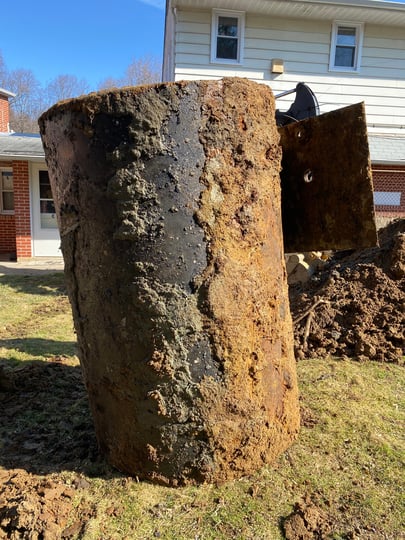
Tanks destroy curb appeal so if selling a house with an oil tank, no one is going to say hey that’s a benefit. The number of buyers is smaller than a property without an oil tank. A house that has an abandoned underground oil tank will stop most buyers in their tracks because the buyer doesn’t want to inherit some problem in the future.
We have had plenty of clients (who eventually hire us to remove the oil tank) selling with a properly abandoned oil tank, properly abandoned in the ground. All permits were obtained, but the deal repeatedly falls apart. Why? Because the buyer goes into attorney review, and they talk to their attorney and decide they won’t proceed out of attorney review unless the seller agrees to remove and test the oil tank.
Now many developers and house flippers will buy a house with an oil tank, but you hope they disclose the tank to the next buyer, otherwise, lawsuits occur, and the original seller whom the flipper bought the house from gets sued. Why sue? Because an oil tank is found and the buyer demands removal, then contamination is found and you, as the original seller, obviously knew about the contamination.
Let’s say you even find someone who wants to buy the house with the oil tank, well the mortgage company may have a thing or two to say. Most lenders are hesitant to make a loan on a property that has an abandoned underground oil tank, even if you have permits. Sometimes for certain loans, the oil tank makes the lender pull the load or the lender wants the tank removed to provide a mortgage.
These are some of the reasons why an oil tank should be properly removed and documented. yo less likely to get sued and more interested buyers translate to a higher purchase price and of course less headaches.
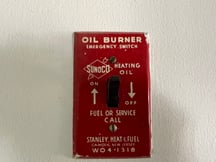
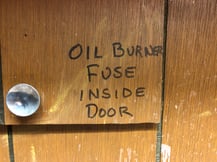
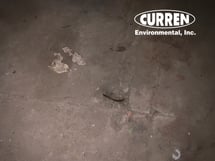
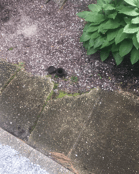
![lClUW0yuSZuqaJQmdD7CjA[1]](https://www.currenenvironmental.com/hs-fs/hubfs/lClUW0yuSZuqaJQmdD7CjA%5B1%5D.jpg?width=227&height=171&name=lClUW0yuSZuqaJQmdD7CjA%5B1%5D.jpg)










